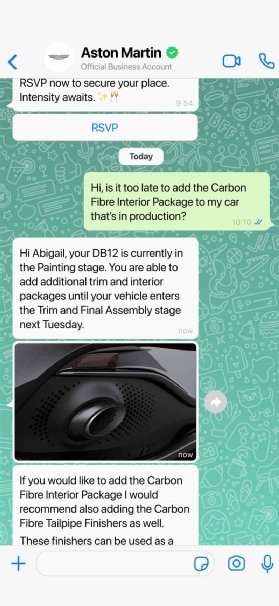
Getty Images/iStockphoto
Salesforce to roll out marketing, e-commerce Einstein Copilots
Salesforce drops a number of new features for commerce and marketing users. Chief among them are generative AI copilots for marketing and e-commerce.
Salesforce Einstein Copilot will make deeper inroads into its marketing and e-commerce clouds when features previewed today are released this year.
Out today are Einstein Copilots for Shoppers and Buyers, which are B2B and B2C shopping assistants, along with Salesforce Checkout. Together, these features personalize shopping experiences with generative AI (GenAI), plugged into the customer's own data, and streamline the checkout process.
The software shopping assistants can answer customer questions and suggest up-sells during chat conversations.
In beta now is Salesforce Einstein Copilot for Merchants, which uses generative AI to automate web store setup, writing product descriptions and merchandising tasks. Planned for June release is Einstein Copilot for Marketing, which also taps generative AI to add personalized content to marketing campaigns and also to identify audience members whom marketers might have missed.
This can be as simple as knowing a customer already has a blue version of the shirt, so the bot suggests the red one, up to detailed purchases such as automobiles tailored to customer preferences, or even more complex B2B deals.
It's a big release for marketers, Constellation Research analyst Liz Miller said. Not only does GenAI create content, but it can help generate ideas. Marketers can "ask their data" questions with the copilot, such as why an email didn't perform up to expectations or if the right audience was targeted when a campaign went flat.

That is a big step up from the previous generations of rules-based, analytics or machine learning automations that could perform limited tasks or make limited predictions.
"You're having a conversation with your data -- and now your data can talk back," Miller said.
"As marketers, we've been trained that you're going to get punished if you ask the 'why didn't it work' questions," she said. "We're going to get punished if we find out why something that we tried had failed. So historically, we don't like asking that. Generative AI gives us an opportunity to ask a lot of those questions without recrimination."
GenAI tools will enable marketers to target more audiences with a campaign than they can now, said Michael Affronti, senior vice president and general manager of Salesforce Commerce Cloud.
"Some of the biggest limitations to personalizing and creating relevant experiences at scale come down to creation and managing content," Affronti said. "When you look at a campaign you might want to run and say, 'Hey, I want to run a version of this for every different audience segment I have,' ... it becomes exponentially more complicated. Generative AI is allowing us to be able to create more efficiencies."
Of course, these copilots need work orders and connections to user data to spur their GenAI features, and it needs to be harmonized. Customers can build commerce and marketing processes for themselves or use customized Salesforce Data Cloud accelerators for marketing or commerce, but they come with a hefty price tag of $108,000 annually for an enterprise license.
Salesforce released and previewed these features in conjunction with its Connections marketing and commerce user conference in Chicago.
Don Fluckinger is a senior news writer for TechTarget Editorial. He covers customer experience, digital experience management and end-user computing. Got a tip? Email him.







